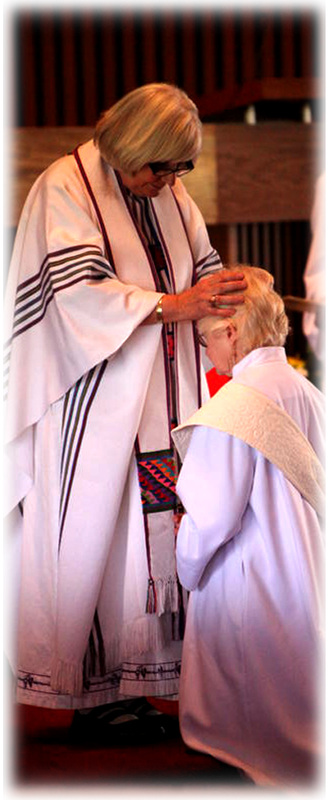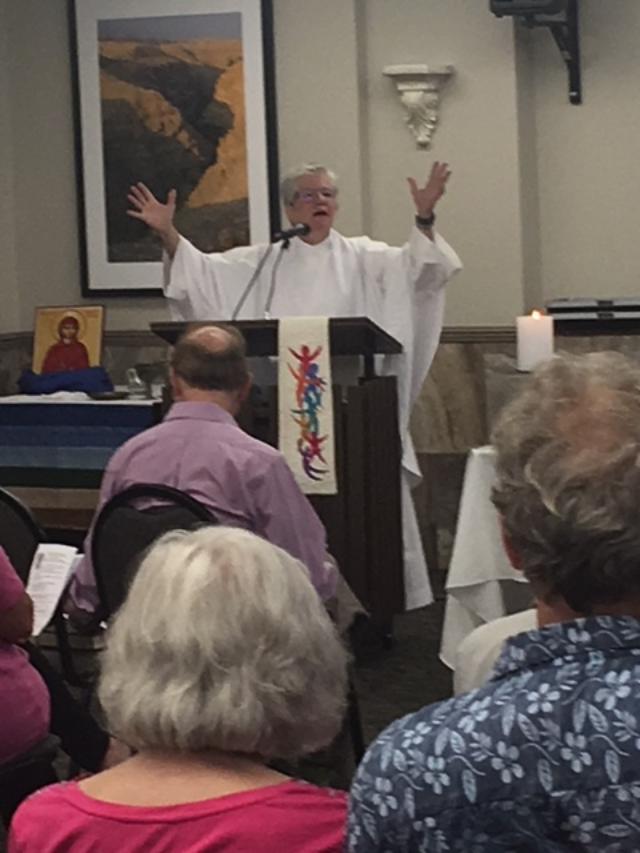August 4, 2024
18th Sunday in Ordinary Time
Helen Weber-McReynolds, RCWP
Ex 16: 2-4, 12-18; Ps. 34; Acts 20: 4-11, Mark 8: 1-9
What does it mean when people share food? (Congregation makes suggestions...) In a survival situation, it means, “I want you to live.” When someone is sick, food can be medicine. In a romantic situation, it can mean, “You mean more to me than anyone else.” In a family, it can mean, “Let us celebrate our bond of unity.” After a big disappointment, it means, “Life will go on, and I still have faith in you.” At the Olympics, when a coach hands an athlete a banana or an electrolyte drink, it means, “I wish for you to succeed.” At a big celebration, like a wedding, it can mean, “We are so happy you are getting married, let us waste a little time and money on food that provides nothing but joy and pleasure, like a big layered cake covered with flowers made of frosting.”
So sharing food can convey all kinds of sentiments. But in all these situations, which is more important—the food? Or the sharing? (Opinions from congregation.)
In a disaster, most people probably do not remember what they ate, but they remember that someone came to their aid and helped them survive. Years after a wedding, we may not remember what was served, but we certainly remember being together and the happiness we felt for the newlyweds.
So I would contend that it is the sharing of food that usually is more important than what was actually eaten. Because sharing means giving of oneself, unselfishly providing for another, putting another person’s needs or happiness before our own.
All of our readings today are about this beautiful act of sharing food. Our first reading, from Exodus, recalled how God helped the Israelites find quail and manna as they traveled across the desert. The people took this as a sign that God loved them and had helped them escape from slavery in Egypt so that they could build a new way of life. They were to follow God’s covenant of love and live according to God’s example of unselfishness and generosity. They were to share with one another as their Creator had shared with them.
The second reading recalls a Eucharistic celebration by Paul and the people of Troas. The sharing, specifically Paul’s sharing of the Word, apparently lasted all night long, such that a young man named Eutychus (whose name means ‘good fortune,’) dozed off and fell out of a third-story window. He was said to have been killed, but then brought back to life, after which they all broke bread, and then conversed some more until dawn. The whole account of this and the following chapters of Acts implies that Paul was in danger, that he was afraid of being arrested or killed during this journey, and that he was eager to share the love of God with the people as fully and as quickly as possible. A few chapters after this reading he is said to have told people in Ephesus, “I do not count my life of any value, if only I may finish the ministry I received from Jesus, to testify to God’s grace.” There was urgency to his sharing. His mission was to relate God’s unconditional love for them, in a way that they would remember it.
The gospel story of Jesus’ sharing the Word of God, along with bread and fish, with a huge crowd of people is the second such account in Mark’s gospel. Just two chapters earlier, Jesus is said to have shared teaching and food with five thousand people, in Jewish territory. This time he was sharing in a mainly gentile region. When the worried disciples asked Jesus a second time how they could feed such a big crowd, he had them take inventory of their stock again, implying, “Do at least whatever you are able to do.” Was Jesus’ teaching about God’s limitless love powerful enough to encourage the people to share what little they had with one another? Had the second group come prepared to share, having heard of the astounding generosity of the first? Or did the people of the surrounding neighborhood come and share some of their food? We don’t know. But we can take the lessons of Jesus as instruction to us: to not despair when things seem overwhelming, but to do what we can do, to share whatever we have with those in need.
The point of all three of these readings, as I see it, is to lead us to remember Jesus’ ultimate sharing of food. This, of course, was when he gave his body and blood to us as bread and wine on the night before he died. “I lay my life on the line for you,” he taught us that evening. “And I do it as an example for you to follow.” He invited us to repeat this ritual over and over, in memory of his ultimate act of love. “Give what you have,” his actions told us. “Do what you can,” his whole life said. All summed up in his instruction to us, “Love one another as I have loved you.”
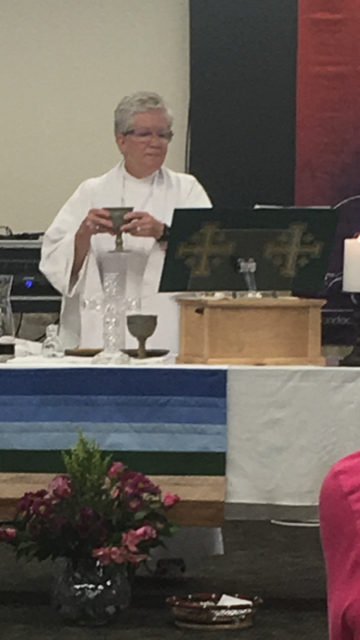
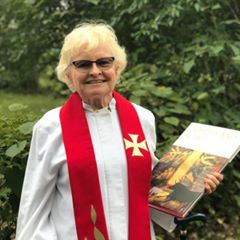
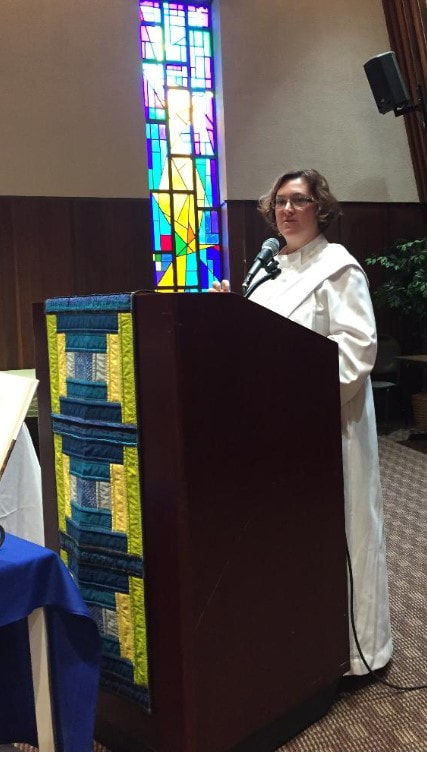
 RSS Feed
RSS Feed
